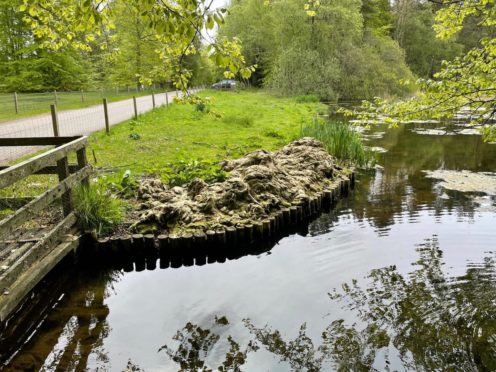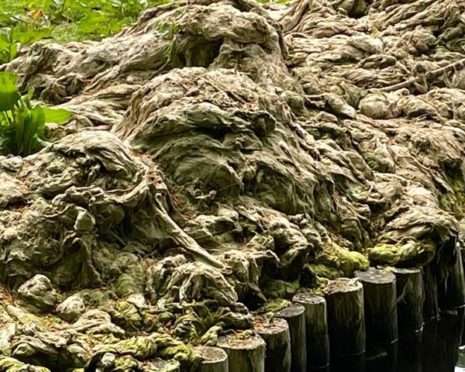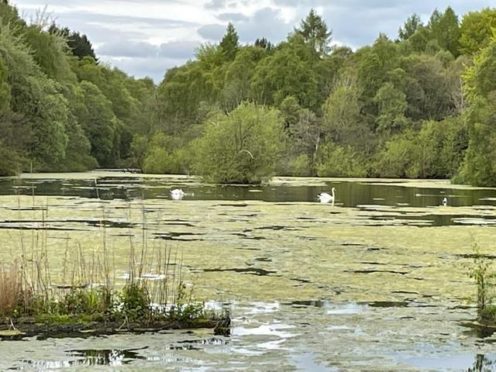Algae is being raked out of the Brodie Castle duck pond in an ongoing battle to keep it at bay.
A mound of dried-up sludge on the water’s edge attest to the National Trust for Scotland’s (NTS) tug-of-war with the floating mat.
Signs at the site say it has become a pest and has “drastically” overgrown.
Barley straw is being used to prevent it from building up and deoxygenating the water.
The signs say this could kill photosynthesising organisms growing beneath the surface.
NTS says the type of algae present is not “directly harmful to wildlife”.
It also says testing by Sepa shows the water quality is “acceptable”.
However, previous efforts to rot the algae were not proving effective so efforts were ongoing.
A trust spokesman said: “The cause is an increase of nutrients in the water stream that feeds the pond.
“This is most likely as a result of run-off from farmland due to current spreading.
“The only danger to wildlife comes if the build-up of algae is such that it deoxygenates the water and we are actively working to avoid that.”
Marathon not a sprint
James Dean, the National Trust for Scotland’s operation’s manager for Brodie Castle and estate said: “It’s a marathon not a sprint and we thank our visitors for their patience as we tackle the troublesome algae.
“Our team at Brodie Castle have been clearing the sluices and gullies as this maintains the flow of water going which in turn helps clear the algae.
“It’s standard practice to pile the algae next to the water’s edge, although it doesn’t look nice, as it allows any invertebrates that may be living in it to return to the water.
“The algae dries out and is then used as natural fertiliser on our fields.
“If we didn’t do this, the sluices would become clogged, water would back up, cause flooding and possibly go stagnant, which would cause bigger problems.”


